Research Article
Review
Review Article
Issue Editorial Board
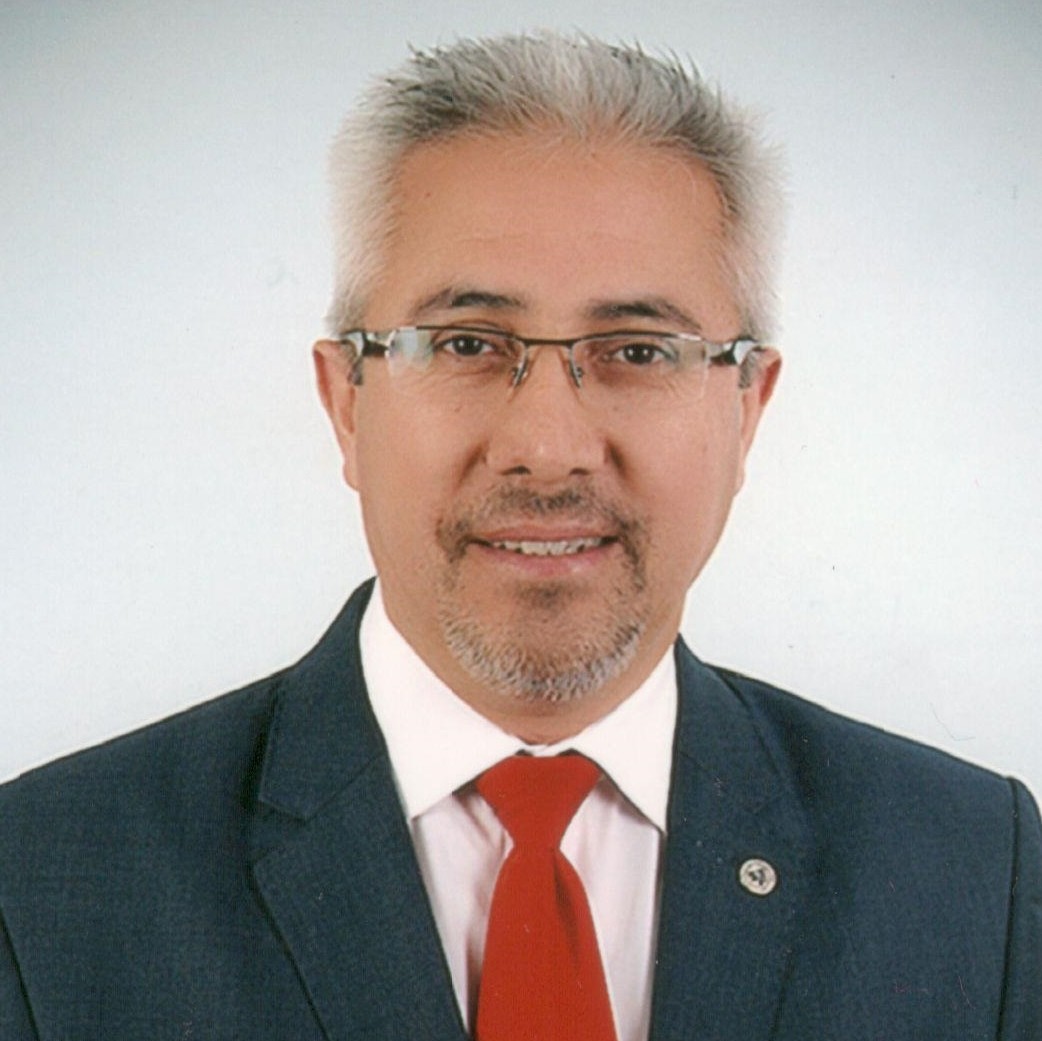
ORDU University Deniz Bilimleri Fakültesi Öğretim Üyesi
ICAM Network & ICAM Publishing | Chief Editor
Blacksea Poet and Author Association | Chairman
Blacksea Nature and Environment Association | Head of Executive Board
OJOP | Journal Platform Term President
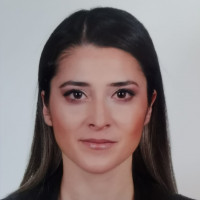

Buket Ertürk İnal Uludağ Üniversitesi Sınıf Öğretmenliği mezunu olup, yüksek lisansını ABD Oregon Üniversitesi Erken Müdahale Erken Çocuklukta Özel Eğitim bölümünde, doktorasını aynı üniversite Özel Eğitim Bölümü'nde tamamlamıştır. Ordu Üniversitesi Özel Eğitim Bölümü Zihin Engellilerin Eğitimi Anabilim Dalı'nda doktor öğretim üyesi olarak sürdürmektedir. Çalışma alanları Otizm Spektrum Bozukluğu olan erken çocukluk dönemindeki bireylerin sosyal iletişim becerileri, problem davranışın değerlendirmesi ve müdahalesi ile bu bireylerin ebeveynlerine beceriler kazandırmak amacıyla ebeveyn eğitimidir.
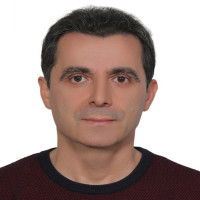
Prof. Dr. Ordu University, Ünye Faculty of Economics and Administrative Sciences, Department of Political Science and Public Administration. Gölevi District, Devlet Sahil Yolu Caddesi, Ünye/ORDU E-Mail Address: cemalozturk@odu.edu.tr

Associate Professor Derya ÖZTÜRK
In 2002, she graduated from Gaziosmanpaşa University, Faculty of Agriculture, Department of Agricultural Economics. In 2006, she completed her graduate education in Gaziosmanpaşa University, Graduate School of Science and Technology, Master Program in Agricultural Economics. In 2008, she started to work as lecturer at Balıkesir University Gönen Vocational School. Her Ph.D degree was completed in 2011 in Gaziosmanpaşa University, Institute of Science and Technology, Department of Agricultural Economics. In 2012, she was appointed to Ordu University Ünye Faculty of Economics and Administrative Sciences, Department of Business Administration as a Faculty Member. In 2018, she became Associate Professor in the Department of Production Management in the Department of Business Administration. She is still working as a Associate Professor at Ordu University Faculty of Economics and Administrative Sciences.
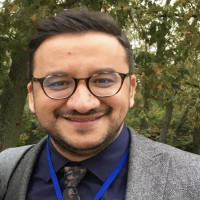
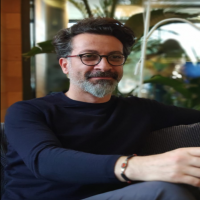
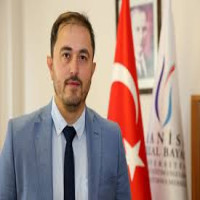









 Web
Web






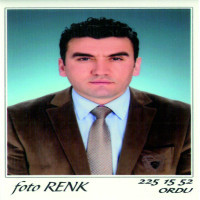
Issue Reviewers
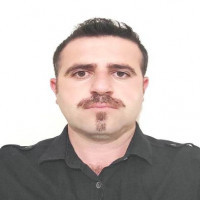
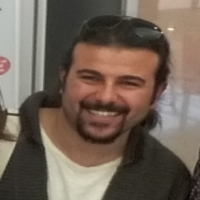

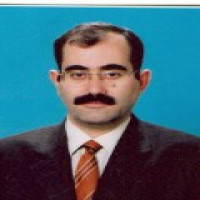
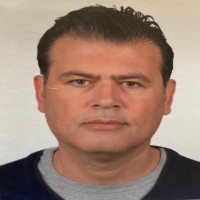
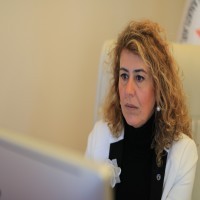




 Web
Web
Assist. Prof. Ali Cicek
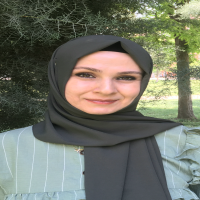
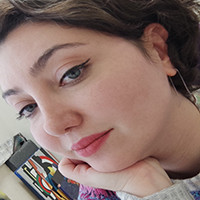

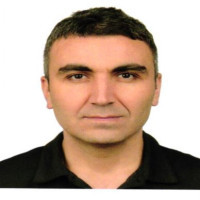
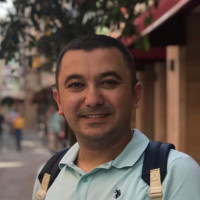



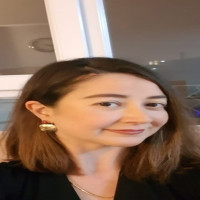
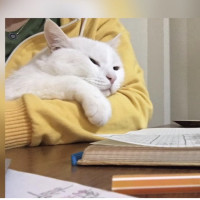





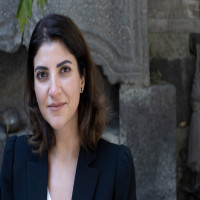
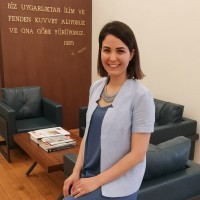




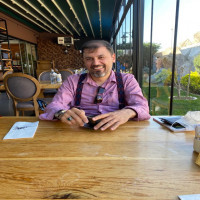
1996-2000, Dokuz Eylül Üniversitesi Buca Eğitim Fakültesi Türkçe Öğretmenliği (lisans)
2000-2004, Eskişehir Osmangazi Üniversitesi Sosyal Bilimler Enstitüsü Türk Dili ve Edebiyatı (yüksek lisans)
2005-2011, Gazi Üniversitesi Eğitim Bilimleri Enstitüsü Türk Dili ve Edebiyatı Eğitimi (doktora)
2000-2004, Millî Eğitim Bakanlığı (Türkçe ve Edebiyat Öğretmeni)
2004-2011, ESOGÜ Eğitim Fakültesi (Arş. Gör.)
2011-2021, ESOGÜ Eğitim Fakültesi (Yrd. Doç.)
2012-2016, ESOGÜ TÖMER Kurucu Müdürü
2021- , ESOGÜ Eğitim Fakültesi Türkçe Eğitimi ABD. (Doç. Dr.)
Dr. Mahmoud BENRAS works at the Faculty of Theology, Giresun University, Turkey.
He received his degrees of Ph.D. from Istanbul University, Turkey (Theology) and from Ouargla University, Algeria (Criticism). He completed his BA and MA in the field of Arabic Literature at Ouargla University. Furthermore, He finished his second BA in the field of Fundamentals of Religion from Emir Abdelkader University, and his second MA in the field of Islamic Studies from Jinan University. He worked at Ouargla University between 2010-2017. He taught modern and contemporary Arabic philosophy and introduction to philosophy. In addition, he taught the introduction of Islamic sciences, and pre-Islamic literature at Ouargla Teachers High School. He is currently teaching various courses such as reading techniques, writing and dictation techniques, Arabic rhetoric, translation techniques, text analysis, media language, research methods in Arabic Language and Literature, and criticism. He is a member of the Scientific Council of the Centre of Research in Islamic Sciences and Civilization (CRSIC) and the Scientific Council of the Centre of Research in Social and Cultural Anthropology (CRASC). He is the field editor-in-Chief of Idrak Journal. He writes his studies in Arabic, Turkish and English, His main studies in Arabic are Foundation of Criticism in Maghreb, Literary Criticism of Ibn Rasheeq, Algeria and its Revolution in Turkish Literature (in press), Philosophy of Theology is the Source of Renewal, The movement of renew theology in Anatolia…His main studies in Turkish are Establishment of Imamate in Maghreb (in press), Ottomans in Algerian literature (in press) and Ibadi Sect and Idea of Screcy (Taqiyya), Ibadi Civil Administrative Organization: Azzâba, and Ibadhi political thought…
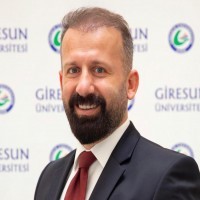


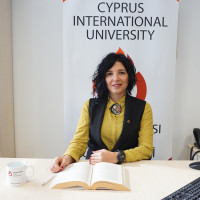
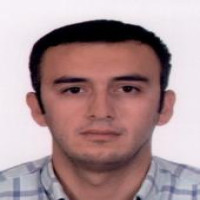
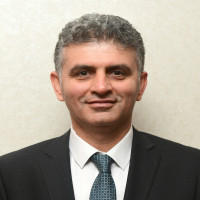
Prof. Dr. Muhammet Recep OKUR 1980 yılında Kırıkkale’de doğdu. 1998 yılında Anadolu Üniversitesi Bilgisayar ve Öğretim Teknolojileri Öğretmenliğini kazandı. Programdan 2002 yılında mezun oldu. 2002 yılında Anadolu Üniversitesi Açıköğretim Fakültesin Bilgisayar Destekli Eğitim Birimde Öğr.Gör. olarak göreve başladı. Yüksek lisansını Anadolu Üniversitesi Fen Bilimleri Enstitüsü Bilgisayar Mühendisliği Bilişim Programında 2006 yılında tamamladı. Doktorasını 2012 yılında Uzaktan Eğitim programında tamamladı. 2017 yılında Açık ve Uzaktan Öğrenme alanının ilk doçent ünvanını alan akademisyeni oldu. 2023 yılında Bilgisayar ve Öğretim Teknolojileri Öğretmenliği bölümüne profesör olarak atandı.
2014 yılında Anadolu Üniversitesi Sosyal Bilimler Enstitüsü Müdür yardımcılığı görevini yürüttü. 2015-2018 yılları arasında Açıköğretim Fakültesi dekan yardımcısı olarak görev aldı. 2020-2024 yılları arasında Rektör danışmanı ve Bilgisayar Araştırma ve Uygulama Merkez müdürü olarak görev yaptı. 2024 yılında Rektör Yardımcısı olarak atandı. TÜBİTAK, UFUK 2020 ve BAP projelerinde yürütücü ve araştırmacı olarak görev aldı.
Prof.Dr.Muhammet Recep Okur’un Ulusal ve uluslararası indeksli dergilerde yayınlanmış makaleleri, kongre ve sempozyumlarda bildirileri bulunmaktadır. Dijital Dönüşüm, Enformasyon Teknolojileri, Bilgi ve İletişim Güvenliği, e-Öğrenme çalışma alanlarındandır.
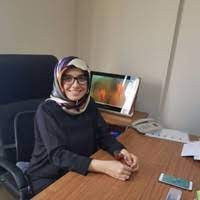
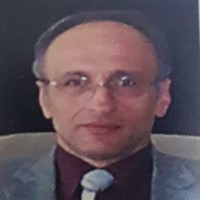
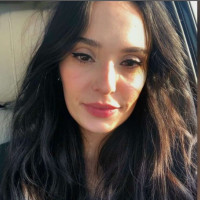
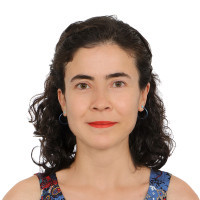
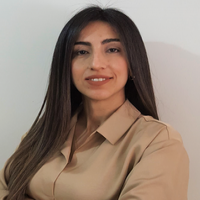
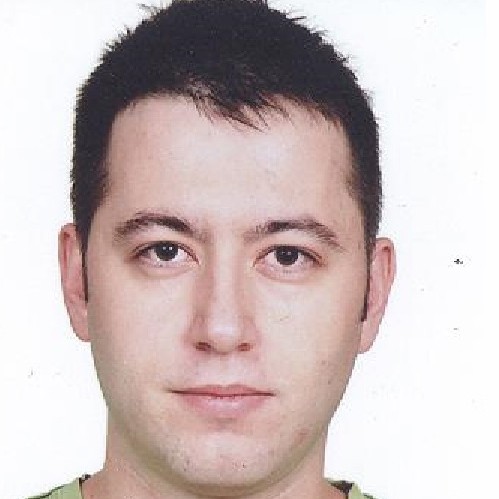





 Web
Web
Bolu International Art Hall / International Poster Design Competition, Head (2019-...)
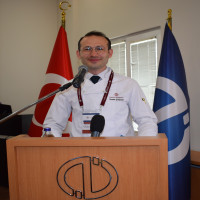






 Web
Web
He graduated from Mengen Anatolian Culinary Vocational High School, in 2004. Then, he has completed Home Economics and Nutrition Education degree program, and the Arabic Language and Literature minor program in 2008. He got master degree in 2010 with "Adaptation of Kitabüt Tabbahin Which is An Ottoman Cook Book (Manuscript) to Our Age" thesis. In 2018, he completed his PhD with the thesis titled “The Classical and Modernized Ottoman Cuisine and Adaptation to The Present”.
He has gone to various countries for different purposes; has worked at various restaurants and hotels. He took part in academic and popular studies on food and beverage. Currently he works as an assoc. prof. dr. in cookery program at Anadolu University, Eskişehir, TURKEY. Güldemir, who is married, teaches courses such as Ottoman Cuisine, Culinary History and Culture, Creative Kitchen Practices and Food Writing at associate and undergraduate levels. He is interested in history of cuisine, food and culture, food and beverage, photography, blog writing, theatre, miniature and swimming.


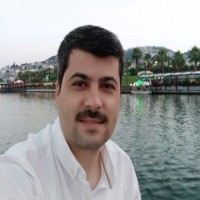
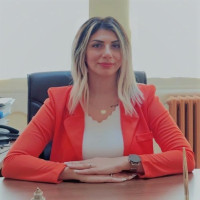
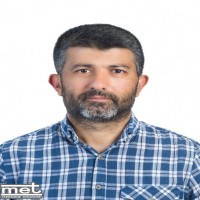
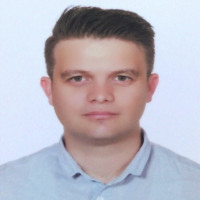



Askeri bando bünyesinde trompet sanatçısı olarak uzun yıllar görev yapmıştır. Uluslararası birçok müzik festivaline katılmış ve yurt içinde çok sayıda konser vermiştir. Ayrıca, prestijli ulusal ve uluslararası etkinliklerde sahne almıştır.
Gazi Üniversitesi Müzik Öğretmenliği Bölümünde ve Ankara Müzik ve Güzel Sanatlar Üniversitesi'nde trompet eğitmeni olarak görev yapmaktadır. Ayrıca, müzik yeteneği, müzik araştırmaları, müzikte ölçme ve değerlendirme gibi konularda akademik çalışmalarına devam etmektedir.
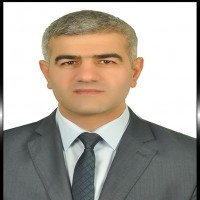



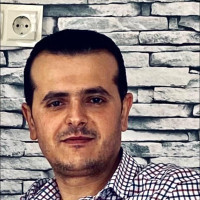



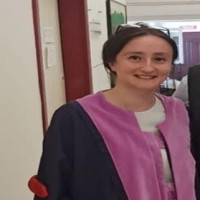
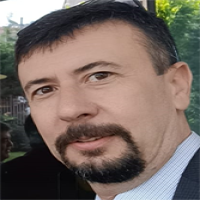

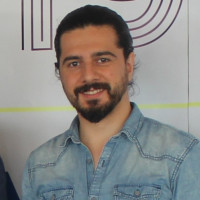

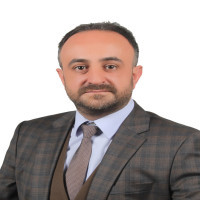



 Web
Web
Doç. Dr.
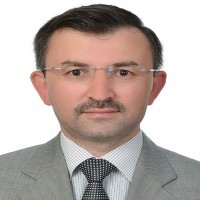
1981 yılında Samsun/Terme Muratlı Köyü’nde doğdu.
İlköğrenimini köyünde bitirdikten sonra (1992) bir yıl (1992-1993) Çarşamba İhsaniye Kur’an Kursu’nda okudu.
Ortaöğrenimini Çarşamba İmam-Hatip Lisesi’nde tamamladı. (1999)
2003 yılında Selçuk Üniversitesi İlahiyat Fakültesi’nden mezun oldu.
2008 yılında Selçuk Üniversitesi Sosyal Bilimler Enstitüsü Felsefe ve Din Bilimleri Anabilim Dalı Din Eğitimi Bilim Dalı’nda “Rahman Suresi’nin Din Eğitimi Açısından Değerlendirilmesi” adlı teziyle yüksek lisansı bitirdi.
2006-2009 yılları arasında DİB Trabzon Eğitim Merkezi’nde dinî yüksek ihtisas eğitimi aldı.
2021 yılında Ondokuz Mayıs Üniversitesi Lisansüstü Eğitim Enstitüsü Felsefe ve Din Bilimleri Anabilim Dalı Din Eğitimi Bilim Dalı’nda “Diyanet İşleri Başkanlığı Mesleğe Hazırlık ve Tashih-i Huruf Hizmet İçi Eğitim Kurslarının Etkililiğinin Değerlendirilmesi” adlı teziyle doktorasını tamamladı.
ÇALIŞMA HAYATI
2003-2005 yıllarında Millî Eğitim Bakanlığı’nda ücretli öğretmen olarak çalıştı.
2005 yılında Diyanet İşleri Başkanlığı’nda İmam-Hatip olarak göreve başladı.
2009 yılında DİB Şanlıurfa Eğitim Merkezi’ne "eğitim görevlisi" olarak atandı.
2011-2016 yılları arasında Almanya Berlin’de din görevlisi olarak çalıştı.
2016-2023 yılları arasında Diyanet Samsun Aşıkkutlu Eğitim Merkezi’nde eğitim görevlisi olarak çalıştı.
29 Mart 2023'ten itibaren Ordu Üniversitesi İlahiyat Fakültesi Din Eğitimi ABD öğretim üyesi olarak görev yapmaktadır.
İyi derecede Arapça, orta derecede Almanca ve başlangıç seviyesinde İngilizce bilen Ertürk, musiki ile de ilgilenmekte ve Ud çalmaktadır.
Yayımlanmış bazı çalışmaları bulunmaktadır. Evli ve üç çocuk babasıdır.
YAYINLARI
Kitapları:
* Türkiye’de Din Görevlilerinin Hizmet İçi Eğitimi, 1. Baskı, Üniversite Yayınları, Samsun 2021; 2. Baskı, İlahiyat Yayınları, Ankara, 2021; 3. Baskı, İlahiyat Yayınları, Ankara, 2024.
* Din Eğitimi Açısından Rahman Suresi, Üniversite Yayınları, Samsun 2021.
* "Eğitimin Amaç ve İşlevleri". (Kitap Bölümü). Eğitime Giriş, ed. M. Fatih Genç- E. Zehra Turan, Lisans Yayıncılık, İstanbul, 2024.
Makaleleri:
* (Hasan Dam’la Birlikte), “Diyanet İşleri Başkanlığı Tashih-İ Huruf Eğitim Programının İçerik ve Etkililiğinin Değerlendirilmesi”, Diyanet İlmî Dergi, Sayı: 55, 2019, ss. 467-494.
* (Hasan Dam’la Birlikte), “Diyanet İşleri Başkanlığı Mesleğe Hazırlık Eğitim Programının İçerik ve Etkililiğinin Değerlendirilmesi”, Ondokuz Mayıs Üniversitesi İlahiyat Fakültesi Dergisi, Sayı: 48, Haziran 2020, ss. 97-137.
* (Mustafa Kara ve Hasan Dam'la birlikte). “Hitabet Ve Mesleki Uygulama Derslerinin Öğrenci Gelişimine Katkı Düzeylerinin İncelenmesi (Ondokuz Mayıs Üniversitesi İlahiyat Fakültesi Örneği)”. Pamukkale Üniversitesi İlahiyat Fakültesi Dergisi 10/2 (December 2023), 738-767. https://doi.org/10.17859/pauifd.1365006.
* (Mustafa Kara ve Hasan Dam'la birlikte). “‘Hitabet Ve Mesleki Uygulama’ Dersleri Müfredatına İlişkin Öğrenci Görüşlerinin İncelenmesi (OMÜ İlahiyat Fakültesi Örneği”. Gümüşhane Üniversitesi İlahiyat Fakültesi Dergisi 13/25 (January 2024), 134-171. https://doi.org/10.53683/gifad.1357595.
* Ertürk, İdris. “Aday İmam-Hatip Ve Müezzin-Kayyımlara Göre Diyanet Akademisi Meslekî Eğitim Programının Değerlendirilmesi”. Dinbilimleri Akademik Araştırma Dergisi 24/2 (September 2024), 751-787. https://doi.org/10.33415/daad.1477156.
Diğer Çalışmaları:
* Benim Camim Benim Kitabım, Berlin 2014. (Kitap, Özel Basım)
* Hızlı Kur’an Öğrenim Kılavuzu, Berlin 2015. (Kitap, Özel Basım)
* Pratik Hutbe-Vaaz Kılavuzu, Samsun 2017. (Kitap, Özel Basım)
* Almanya’da Unutulmuş Bir Camimiz ve Şehitliğimiz: Wünsdorf, (Makale, 2017, www.academia.edu)
Kurum
Ordu Üniversitesi İlahiyat Fakültesi Felsefe ve Din Bilimleri Bölümü Din Eğitimi Anabilim Dalı

1981 yılında Hekimhan/Malatya’da doğdu, ilk, orta ve lise eğitimini Malatya’da tamamladı. Dokuz Eylül Üniversitesi Güzel Sanatlar Fakültesi Sinema-Televizyon bölümünden 2003 yılında mezun oldu. 2004 yılında Afyon Kocatepe Üniversitesi Güzl Sanatlar Fakültesi Sinema ve Televizyon bölümünde araştırma görevlisi olarak çalışmaya başladı. 2010 yılında Afyon Kocatepe Üniversitesi Sosyal Bilimler Enstitüsü Sosyoloji Anabilim dalında “Kültür Endüstrisi ve Ideoloji: Hollywood ve Steven Spielberg Sinemasi Örneği” adlı tezle yüksek lisans eğitimini, 2021 yılında Dokuz Eylül Üniversitesi Güzel Sanatlar Enstitüsü Film Tasarımı bölümünde “2000 Sonrası Türk Sinemasında Aleviliğin Görünürlüğüne Dair Temsiller” adlı tezle de doktora eğitimini tamamladı.Tekirdağ Namık Kemal Üniversitesi Güzel Sanatlar Tasarım ve Mimarlık Fakültesinde doktor öğretim üyesi olarak olarak çalışmaya devam etmektedir.
Aim & Scope
The aim of the Ordu University Journal of Social Sciences Research (ODUSOBIAD) is to make contributions to the advancement of social sciences by publishing highly rigorous and scholarly research studies across various domains of social sciences on a triennial basis, with issues released in March, July, and November. ODÜSOBİAD aims at becoming a distinguished and esteemed online journal within the field of social sciences.
The journal is devoted to generating and disseminating high-quality academic knowledge to all individuals interested in the pursuit of scientific understanding through an open access system. In line with this objective, all articles published in our journal are archived on our website and made readily accessible to our readers without the requirement of membership.
ODUSOBIAD is an international peer-reviewed journal. The publication languages of the journal are Turkish, English, Russian, Arabic and German.
The scope of ODUSOBIAD encompasses scholarly inquiries in the following academic disciplines:
Archaeology
History of art
History
Turkish Language and literature
Sociology
Geography
Western Languages and Literature
Economy
Business
Public Administration
Finance
International relations
Law
Public Relations and Advertising
Fine Arts
Philosophy and Religious Studies
Basic Islamic Sciences, among others.
Furthermore, the journal welcomes publication evaluations, critical analyses, and promotional articles pertaining to these subject areas.
Author Guidelines
JOURNAL OF SOCIAL SCIENCES RESEARCH
• In order for the article to be published, either the author or one of the authors must hold a doctoral degree or a higher academic title.
• The submitted articles to the journal undergo an initial screening process and, if deemed suitable, are sent to two referees (double-blind peer review) through the handling editor. If necessary, a third referee may also be assigned. The handling editor may also review the submitted article as a referee. Due to the high volume of incoming articles, it should not be expected for the received articles to be published in the first issue following the initial submission date.
• The manuscripts submitted to the journal should not have been previously published or simultaneously submitted to another journal for publication.
• The manuscripts submitted to the journal cannot be withdrawn or returned if the referee process has been completed or the referee evaluation phase has been done.
• The author is required to obtain a plagiarism (similarity) report for the manuscript and submit it along with the article. For the publication of the study, the overall similarity index should not exceed 20% and should not exceed 3% for a single publication. In the case of articles derived from postgraduate theses, the overall similarity index should not exceed 20%, 10% in the primary source, and 3% in a single publication. The similarity index of submitted articles is also checked by our journal using the iThenticate program both in the initial stage and after the completion of the peer review process, before entering the acceptance phase.
• The manuscripts submitted for publication should be prepared in accordance with the academic writing rules in Turkish or other languages accepted by our journal.
• The copyright of any published work belongs to the journal. A copyright form should be filled out and submitted along with the manuscript.
• The relevant editor has the authority to make necessary proofreading corrections. If deemed necessary, the abstract in a foreign language can be edited by a foreign language editor.
• The authors are solely responsible for the opinions expressed in the articles published in the journal. The authors bear full legal responsibility for their articles.
• Utmost care should be taken to adhere to research and publication ethics in scientific studies submitted to the journal. If permission from an ethics committee is required for the submitted article, the corresponding approval document should be included. If you believe that your manuscript does not require ethics committee approval, please fill out the "Ethics Committee Exemption Declaration" form and upload it to the system.
• For international compatibility, it is recommended to use Zotero, Mendeley, or EndNote for article writing.
CLICK for Zotero User Manual
CLICK for Mendeley User Manual. Daha fazla bilgi için https://www.mendeley.com
• Article proposals should be prepared following the article template downloaded from our journal's website, ensuring that the template remains intact. Articles that are not prepared according to the template will not be considered for evaluation.
Article Evaluation Process:
The articles submitted for publication undergo the following stages: INITIAL SCREENING, PLAGIARISM CHECK, HANDLING EDITOR REVIEW, PEER REVIEW, LANGUAGE AND EDITING CHECK. If a manuscript fails to pass the Initial Screening stage after being reviewed twice, it is returned to the author and not reconsidered for the same publication period. Manuscripts that pass the Initial Screening stage are subjected to the evaluation process, which follows the principle of double-blind peer review involving at least two referees. MANUSCRIPTS THAT RECEIVE POSITIVE EVALUATIONS AND WHOSE SIMILARITY REPORTS, IF REQUESTED, ARE DEEMED APPROPRIATE ARE ACCEPTED AND PROCEED TO THE PUBLICATION PROCESS FOR INCLUSION IN THE RELEVANT ISSUE OF THE JOURNAL. AT THIS STAGE, IF THE AUTHOR WISHES, AN ACCEPTANCE LETTER CAN BE SENT.
Note: In each issue of our journal, one-third of the content is allocated, without considering authorship, to faculty members of Ordu University and our editorial team, provided they submit one article per year. Articles from within the institution or the editorial team will be evaluated by external handling editors, and the double-blind peer review process will be initiated. Additionally, our esteemed authors who submit articles to our journal have the right to publish one article within one year (March-June-September-November), regardless of authorship order. This does not include special issues.
All processes related to submitted articles are conducted through the Dergipark system, and other communications are facilitated through the message section of the system and the journal's email address.
Rules for Writing a Book Review.
A book review should not merely be a summary but rather a critical evaluation of a work. If the reviewer disagrees with the book's ideas, they should indicate its strengths or weaknesses. Conversely, if the reviewer agrees with the author, they should express their alignment. The reviewing author should focus on the book's contribution to the scholarly community, regardless of the adequacy of the sources used in its promotion.
Book Review Writer should:
• Explain why the book is worth reading.
• Examine the methods used by the author, if the book introduces a new approach,
• Clearly state the author's purpose in the book,
• Support them with specific examples if a positive or negative comment is provided,
• Always maintain neutrality and avoid personal opinions.
• Book review texts should be between 1500-3000 words,
• The cover page of the reviewed work should be included as an attachment to the article,
• The header information should include the title of the introduced or reviewed work, the author, the city and publisher of publication, the year of publication, the number of pages, and the ISBN number. The author's name should be aligned to the right, beneath the header information, and author information should be placed at the bottom of the page. The book's cover photo should be included on the first page.
Submission Guidelines
Articles submitted to the Journal of Social Science Research at Ordu University Institute of Social Sciences (ODUSOBIAD) should be prepared in accordance with the American Psychological Association (APA) 7.0 citation style, including referencing system, footnote format, and bibliography. Any submissions that do not adhere to these guidelines will not be accepted. The submitted article must not have been previously published or simultaneously submitted to any other journal for evaluation.
According to the decisions taken by the relevant committees of TÜBİTAK ULAKBİM TR DİZİN, the following types of research among the authors of articles submitted for publication in all journals indexed in TR DİZİN for the year 2020 require Ethics Committee approval:
• Any research involving data collection from participants using survey, interview, focus group study, observation, experimental, or other qualitative or quantitative approaches,
• Use of human and animal subjects (including materials/data) for experimental or other scientific purposes,
• Clinical research involving human subjects,
• Research involving animals,
• Retrospective studies in accordance with the Law on Protection of Personal Data.
Furthermore;
• Indicating that an "informed consent form" was obtained in case reports,
• Obtaining and expressing permission from the owners for the use of scales, surveys and photographs belonging to others,
• Indication of compliance with copyright in the intellectual and artistic works used.
For further information, check:
NOTE: Retrospective ethics committee approval is not required for articles whose data are used, produced from master's/doctoral studies (must be specified in the article), submitted to the journal within the previous year, accepted but not yet published. Please indicate in the declaration form that your study meets this condition.
“For articles to be submitted to the journal in accordance with TÜBİTAK ULAKBIM requirements,
For studies that require data collection with methods such as scales, questionnaires, interviews, observations, etc., ethics committee approval (ethics committee name, decision date and number) must be stated and documented on the first and last page of the article and in the method section. Moreover, the information that the informed consent/assent form has been signed should be stated in the text.
For detailed information, see;
https://tubitak.gov.tr/sites/default/files/20689/ekbn_2020.pdf
https://tubitak.gov.tr/sites/default/files/20689/ legal_ozel_izin_belgesi_bilgi_notu.pdf
In studies requiring ethics committee approval, information about the permission (name of the board, date and number) should be included in the method section and also on the first / last page of the article.
Ethics Committee Approval
According to the decisions taken by the relevant boards of TÜBİTAK ULAKBİM TR DIZİN, among the authors of the articles that are indexed in TR DİZİN for 2020 and will be submitted for publication in all journals that are at the stage of evaluation;
Researches requiring the permission of the Ethics Committee are as follows.
• All kinds of research conducted with qualitative or quantitative approaches that require data collection from participants using questionnaires, interviews, focus group work, observation, experimentation, interview techniques.
• Use of humans and animals (including material / data) for experimental or other scientific purposes,
• Clinical trials on humans,
• Research on animals,
Retrospective studies in accordance with the law on protection of personal data,
Also;
• Stating that "informed consent form" was obtained in case presentations,
• Obtaining and indicating permission from the owners for the use of scales, questionnaires and photographs belonging to others,
• Stating that the copyright regulations are complied with for the intellectual and artistic works used.
For detailed information, see;
https://tubitak.gov.tr/sites/default/files/20689/ekbn_2020.pdf
https://tubitak.gov.tr/sites/default/files/20689/ legal_ozel_izin_belgesi_bilgi_notu.pdf
NOTE: Retrospective ethics committee approval is not required for articles that have been used prior to 2020 research data, produced from master's / doctorate studies (should be specified in the article), published articles submitted to the journal in the previous year, accepted but not yet published. Please indicate in the declaration form that your work carries this situation.
In the article, evidence of the care shown to ethical principles during the data collection process (such as obtaining permission from others for the use of scales, questionnaires, documents) should be presented and it should be stated that research and publication ethics are complied with in the articles.”
Depending on the information given above;
In studies requiring ethics committee approval, information about the permission (name, date and number of the committee) should be included in the method section and also on the first/last page of the article.
Page Format:
The manuscript should be prepared on A4 paper with 2.54 cm margins from the right, left, bottom and top.
Title:
The title should be descriptive of the article, reflect the main concepts, discussions and main argument of the article and should not exceed 12 words if possible. It should be written in Georgia font in 12 font size, centered, the first letter of each word should be capitalized, only the title of the article should be written in articles and abstracts, and the author's name should not be included. For papers presented at the meeting but not published, the name, date and place of the meeting should be indicated at the final stage of the evaluation.
Authors should provide their information (names, full and open institutional addresses, telephone and fax numbers, e-mail addresses and ORCID IDs) in the journal system, not in the text of the manuscript. This information will not be sent to the referees.
Ethics Committee Permission information should be given as a footnote in the title.
Abstract
It should include a brief summary of each of the main sections of the article (introduction, findings and method, results, discussion and recommendations) and allow the reader to quickly and precisely identify the content of the article, determine its relevance to the content of the article and thus decide whether they should read the article in its entirety.
Article Title Georgia, 12 Punto Bold, Left Accelerated and Only First Letters Capitalized
Article Title in Other Language Georgia, 12 Punto, Centered and Capitalized First Letters Only
Abstract title Georgia bold, 11 font size
The text of the abstract should be in Georgia, 9-point font, 1.5 line spacing, and the English translation of the Turkish "ÖZ" consisting of at least 150 and at most 300 words should be attached. Foreign language manuscripts should have a Turkish abstract. For manuscripts in languages other than English and Turkish, an abstract in the language of the manuscript should also be included.
Keywords: There should be at least 5 key words.
Abstract title Georgia bold, 11 font size
Abstract text should be in Georgia, italic, 9 font size, 1.5 line spacing.
Keywords: There should be at least 5 keywords
Introduction title Georgia, 11 font size
The text should be in Georgia font, 10 points, and all sections of a paper prepared in APA 7 style, including the abstract, should be 1.5-line spacing.
Text, citations, table and figure numbers, headings, notes and reference list (including between and within entries).
No extra spaces should be added before or after paragraphs.
Each paragraph should not be indented.
The main text should be between 4000-9000 words, excluding the ‘ÖZ’, abstract, image captions and bibliography.
Parts that need to be emphasized in the text should be written in italics.
The article should not exceed 30 pages including images.
Subheading Georgia, Italic, 11 font size (For level headings see: APA 7 writing style)
Georgia font, 10-point font should be used in the article. However, if special fonts are used during writing as required by some fields, these fonts should be uploaded to the system with the article.
Abbreviations to be used in articles should be based on TDK Spelling Guide.
Block quotations in the article should be organized as follows: All block quotations should be indented 0.5 inches from the left margin.
* Please refer to APA 7.0 writing style for citation variations such as "long quotation, short quotation less than 40 words and quotations over 40 words etc. in article writing.
In line with the conditions of TÜBİTAK ULAKBİM, for articles to be sent to the journal:
Indicating and documenting the ethics committee approval (name, decision date and number) for research that requires data collection through methods such as scales, questionnaires, interviews, observations, on the first and last page of the article and in the method section,
Including in the article the information that the informed consent/consent form was signed,
Presenting the proofs of attention to ethical principles in the data collection process (such as obtaining permission from others for the use of scales, questionnaires, documents) in the article,
Based on “It should be stated in the articles that research and publication ethics are complied with.”,
In studies requiring ethics committee permission, information about the permission (name of the committee, date and number) should be included in the method section and also on the first page of the article.
Tables and Images, Georgia, bold, 11 font size
Tables and visual descriptions and notes used in the article should be centered, Georgia, 10 pt. font size and all figures other than Tables should be named as "Visual".
Tables and Figures should be numbered consecutively. They should be referred to in the text as (Table 1, Figure 1). An appropriate short description should be used for each image and table, and if the image or table is taken from another source, the source information should also be included.
There should be a maximum of 20 tables and images in the article.
** "Table information" should be centered ABOVE the table and "image information" should be centered BELOW the image.
Conclusion and Recommendations title Georgia, bold, 11 font size
The conclusion should be written in Georgia, in 10-point font, without paragraph indentation.
Author Contributions Heading Georgia, bold, 11 font size (to be filled in after the referee process for manuscripts with 2 or more authors)
Author contributions text 10 font size, no paragraph indent, Georgia font, double line spacing
1st Author: .... %, 2nd Author: .... %, contributed to the study.
Conflict of Interest Statement heading Georgia, bold, 11 font size (to be filled in after the review process)
There is no financial conflict of interest with any institution, organization or person regarding our article titled "...........................................................................". There is also no conflict of interest between the authors.
If there is a conflict of interest, please explain the scope of the conflict of interest in the space below.
References Georgia bold, 11 font size
Bibliography should be written in Georgia, 10 font size, without paragraph indentation, hanging, 1.25, double-aligned and 1.5-line spacing.
Extended Abstract, Georgia, bold, 11 font size (to be written after acceptance of the article)
The text should be in Georgia, Italic, 9 font size, minimum 500 and maximum 1000 words,
While, for the manuscripts written in Turkish, extended abstract should be written in English,
for the manuscripts written in English, extended abstract should be written in Turkish.
CLICK FOR APA 6 SYSTEM REFERENCES AND REFERENCES.
CLICK TO SHOW ISNAD 2 SYSTEM FOOTNOTE AND SOURCES.
*** If one of the items in the checklist is missing, the article will not be evaluated.
Organizing the article according to the magazine article template,
Compliance of the article with the current writing rules of the journal,
Title (Turkish-English), author information (title, institution, e-mail, ORCID ID),
Abstract (150-300 words)
Abstract (to be checked by our foreign language editor),
Keywords (5 words),
Main text (4,000-9,000 words excluding abstracts and bibliography),
Tables and figures (should have numbers and titles, reference should be made in the text, only visual expression should be used for tables and all figures, maximum 20),
Footnote (Footnotes should not be used for reference) • Quotations (if it exceeds 40 words, block quote, italic within the quote),
Citations and Bibliography APA 6 or ISNAD 2 edition must be appropriate,
Extended Abstract (500-1000 words will be added in case of acceptance of the article, provided by our foreign language editor),
Copyright Transfer Form must be uploaded through the system,
Uploading the Ethics Committee Declaration Form on the system.
System implementation of plagiarism report (maximum 20% similarity, similarity report will be taken by the editor of our journal)
* The shipments in the order according to this formal should not exceed 30. Do not transfer the expanded English summary for the content of the publication to this page boundary.
.......... ARTICLES THAT DO NOT APPLY TO THESE RULES CANNOT BE TAKEN INTO EVALUATION .........
Ethical Principles and Publication Policy
Ethical Principles and Editorial Policy
Publication Ethics
The publication processes implemented at ODUSOBIAD constitute the basis for the development and distribution of information in an impartial and reputable manner. The processes implemented in this direction directly reflect on the quality of the work of the authors and the institutions supporting the authors. Peer-reviewed studies are studies that embody and support the scientific method. At this point, it is important that all stakeholders of the process (authors, readers and researchers, publisher, referees and editors) comply with the standards for ethical principles. Our journal expects all stakeholders to carry the following ethical responsibilities within the scope of publication ethics.
While establishing the following ethical duties and responsibilities, guidelines and policies published as open access by Committee on Publication Ethics (COPE) and Council of Higher Education (YÖK) Directive on Scientific Research and Publication Ethics have been thoroughly taken into consideration.
Ethical Responsibilities of Authors
Author(s) submitting a study to ODUSOBIAD are expected to comply with the following ethical responsibilities.
Author(s) are expected to submit original work. In case the author(s) utilize other works or use other works, they are required to cite and/or quote them completely and accurately.
Individuals who did not contribute intellectually to the content of the study should not be listed as authors.
All manuscripts submitted for publication must disclose any conflicts of interest and relationships.
The author(s) may be requested to provide raw data on their manuscripts within the framework of the evaluation processes, in such a case, the author(s) should be ready to present the expected data and information to the editorial board and scientific committee.
The author(s) should have a document showing that they have the rights to use the data used, the necessary permissions related to the research/analyses, or the consent of the experimental subjects.
In case that the author(s) becomes aware of an inaccuracy or error in the published, early view or under review manuscript, the author(s) has the obligation to notify the journal editor or publisher and to cooperate with the editor in correcting or withdrawing the manuscript.
Authors cannot have their work in the submission process of more than one journal at the same time. Each submission can be initiated following the completion of the previous submission. Manuscripts published in another journal cannot be submitted to us.
It cannot be proposed to change the author responsibilities (such as adding an author, changing the author order, removing an author) of a study whose evaluation process has started.
Authors are obliged to declare the organizations and financial sources that support the submitted work in the Acknowledgments section.
Ethical Duties and Responsibilities of Editors
ODUSOBIAD editors and field editors should have the following ethical duties and responsibilities based on the open access guidelines published by Committee on Publication Ethics (COPE): The COPE Code of Conduct and Best Practice Guidelines for Journal Editors" and COPE Best Practice Guidelines for Journal Editors
General duties and responsibilities
Editors are responsible for every publication in the journal. In the context of this responsibility, editors have the following roles and obligations:
-Endeavoring to meet the information needs of readers and authors,
-Continuously improving the journal,
-Conducting processes to improve the quality of the work published in the journal,
-Supporting freedom of thought,
-Ensuring academic integrity,
-Continuing processes without compromising intellectual property rights and ethical standards,
-Showing transparency in matters requiring correction and clarification.
Relations with the reader
-Editors should make decisions by taking into account the expectations of knowledge, skills and experience needed by all readers, researchers and practitioners. They should make sure that the published studies contribute to readers, researchers, practitioners and the scientific literature and that they are original. In addition, editors are obliged to take into account the feedback from readers, researchers and practitioners and to provide explanatory and informative feedback.
Relations with authors
The duties and responsibilities of editors towards authors are as follows:
-Editors should make a positive or negative decision based on the importance, original value, validity, clarity of expression and the aims and objectives of the journal.
-Editors should take the manuscripts that are suitable for the scope of publication to the preliminary evaluation stage unless they have serious problems.
-Editors should not ignore positive referee recommendations unless there is a serious problem with the study.
- New editors should not change the decisions made by the previous editor(s) unless there is a serious problem.
- The "Blind Review and Evaluation Process" should be published, and editors should prevent deviations that may occur in the defined processes.
-Editors should publish an "Author's Guide" that includes every issue that will be expected by the authors in detail. These guides should be updated at certain time intervals.
-Authors should be notified and responded in an explanatory and informative manner.
Relations with reviewers
The duties and responsibilities of the editors towards the referees are as follows:
- Selecting in accordance with the subject of the study.
-Providing the information and guidelines that the referees will need during the evaluation phase.
-Monitoring whether there is a conflict of interest between authors and reviewers.
-Keeping the identity information of the reviewers confidential in the context of blind reviewing.
-Encouraging reviewers to evaluate the manuscript in an impartial, scientific and objective manner.
- Evaluating reviewers on criteria such as timeliness and performance.
-Applying policies to improve the performance of referees.
-Taking the necessary steps to dynamically update the referee pool.
-Preventing impolite and unscientific evaluations.
-Taking steps to ensure that the pool of referees is composed of a broad spectrum.
Relations with the editorial board
Editors should ensure that all editorial board members follow editorial policies and guidelines. They should inform editorial board members about editorial policies and keep them informed about developments. They should train new editorial board members on editorial policies and provide them with the information they need.
Furthermore, editors should;
-Ensure that editorial board members evaluate the studies impartially and independently.
-Identify new editorial board members who can contribute and have appropriate qualifications.
-Send manuscripts for evaluation that are appropriate to the expertise of the editorial board members.
-Interact regularly with the editorial board.
-Organize meetings with the editorial board at regular intervals for the development of editorial policies and the journal.
Relations with the journal owner and publisher;
The relationship between the editors and the publisher is based on the principle of editorial independence. According to the written agreement between the editors and the publisher, all decisions of the editors are independent of the publisher and the journal owner.
Editorial and blind review processes
Editors are obliged to implement the "Blind Review and Evaluation Process" policies in the journal publication policies. In this context, the editors ensure that the evaluation process of each study is completed in a fair, impartial and timely manner.
Quality assurance:
Editors are responsible for ensuring that each article published in the journal is published in accordance with the journal's editorial policies and international standards.
Protection of personal data:
Editors are responsible for ensuring the protection of personal data of the subjects or images included in the evaluated studies. Unless the explicit consent of the individuals used in the studies is documented, they are responsible for rejecting the study. Editors are also responsible for protecting the personal data of authors, reviewers and readers.
Ethics committee, human and animal rights:
Editors are responsible for ensuring that human and animal rights are protected in the evaluated studies. They are responsible for rejecting the study in the absence of ethics committee approval for the subjects used in the studies and permissions for experimental research.
Precautions against possible abuse and misconduct:
Editors are obliged to take precautions against possible misconduct and malpractice. It is among the responsibilities of the editor to conduct a rigorous and objective investigation in identifying and evaluating such complaints, as well as sharing the relevant findings.
Ensuring the integrity of academic publications:
Editors should ensure that errors, inconsistencies or misleading judgments in manuscripts are promptly corrected.
Protecting intellectual property rights:
Editors are responsible for protecting the intellectual property rights of all published articles and defending the rights of the journal and the author(s) in case of possible violations. Editors are also responsible for taking the necessary measures to ensure that the content of all published articles does not violate the intellectual property rights of other publications.
Constructivism and openness to discussion:
Editors should take into account convincing criticisms of the works published in the journal and adopt a constructive attitude towards these criticisms. They should give the author(s) of the criticized studies the right to reply.
They should not ignore or exclude studies with negative results.
Complaints:
Editors are obliged to carefully review complaints from authors, reviewers or readers and respond in an enlightening and explanatory manner.
Political and Commercial Concerns:
The journal owner, publisher, and any other political or commercial considerations should not influence the independent judgment of the editors.
Conflicts of Interest:
The editors ensure that the publication process of manuscripts is completed in an independent and impartial manner, taking into account conflicts of interest between the author(s), reviewers and other editors.
Ethical Responsibilities of Reviewers:
-The evaluation of all manuscripts by "Blinded Review" directly affects the quality of the publication. This process provides confidence through objective and independent evaluation of the publication. ODUSOBIAD evaluation process is carried out with the principle of double blind reviewing. Reviewers cannot communicate directly with the authors, and evaluations and comments are communicated through the journal management system. In this process, reviewer comments on evaluation forms and full texts are communicated to the author(s) through the editor. In this context, referees who evaluate manuscripts for our journal are expected to have the following ethical responsibilities:
- Accept only studies related to their field of specialization.
- Evaluate with impartiality and confidentiality.
- Refuse to review the study and inform the editor of the journal if they think that they are faced with a conflict of interest during the evaluation process.
- Annihilate the studies they have reviewed after the evaluation process due to the principle of confidentiality. They can only use the final versions of the studies they have reviewed only after publication.
- Evaluate objectively only the content of the study. They should not allow nationality, gender, religious beliefs, political beliefs and commercial concerns to influence the evaluation.
- Evaluate in a constructive and courteous manner. They should not make derogatory personal comments containing hostility, slander and insult.
- Perform the work they have accepted for evaluation on time and in accordance with the above ethical responsibilities.
Ethical Responsibilities of the Publisher
The Board of Directors of the Journal is aware of the following ethical responsibilities:
Editors are responsible for all processes of the manuscripts submitted to the journal. In this context, editors are the decision-makers, regardless of economic or political gains. Publisher is committed to implementing independent editorial decision-making process.
ODUSOBIAD protects the ownership and copyright of each published article and undertakes the obligation to keep a record of each published copy. It has the responsibility to take measures against all kinds of scientific misconduct, citation mongering and plagiarism related to editors.
If you encounter an unethical situation:
If you encounter any unethical behavior or content in our journal other than the ethical responsibilities mentioned above, please report it via e-mail to odudergi@gmail.com.
Price Policy
Dergimizde yayımlanan makaleler için herhangi bir ücret alınmamaktadır.
Article submission / process operation is free of charge
